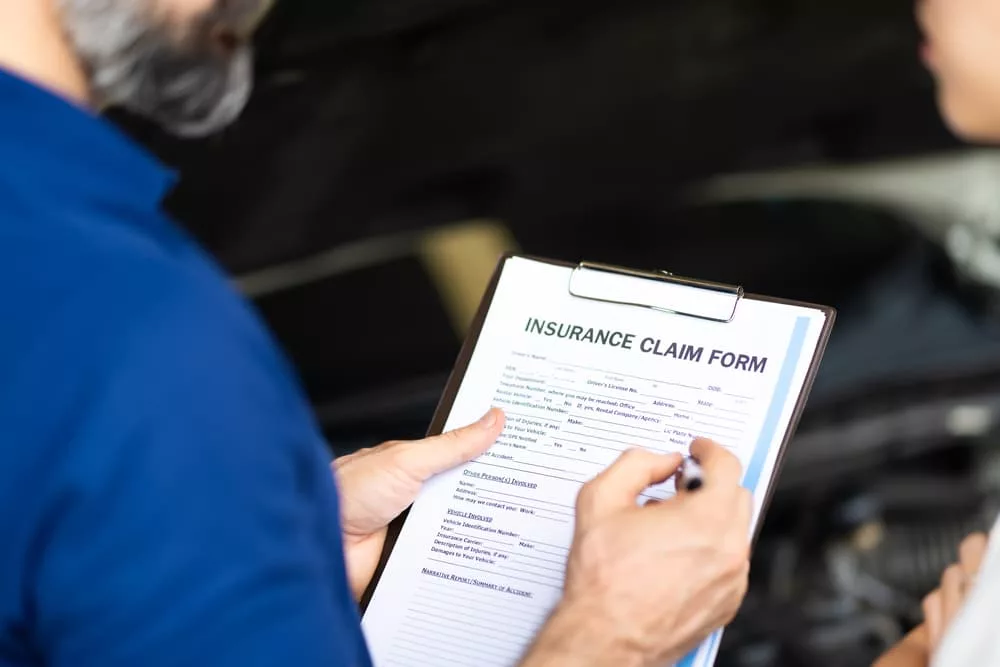As a Florida resident, you might have heard you live in a no-fault state regarding traffic accidents. You are not alone if you find this term confusing. Does this mean state law prohibits you from seeking compensation from a negligent driver? Will you be responsible for the costs resulting from your injuries and property damage? Reach out to a car accident lawyer.
While these questions are common, living in a no-fault state does not mean that individuals never bear any liability for the accidents they cause. If you suffered injuries in a car crash, you still can contact a lawyer and seek compensation for your losses. Because the process can perplex those without a thorough knowledge of personal injury law, you may wonder what to do in this situation. Read on to learn more about no-fault car accident claims in Florida.
The Meaning of a No-Fault Car Insurance State
Every state in the country establishes its own laws about what types of insurance vehicle owners must carry. Most states are tort liability states, which means that a driver who is at fault for a crash uses their insurance to pay for the expenses of anyone else who suffered injuries in the accident.
However, other states elect to be no-fault states. The law requires motorists to have a personal injury protection (PIP) policy in these jurisdictions. Rather than seeking compensation in the first instance from an at-fault driver, an individual submits a claim to their own insurance company regardless of fault. The aim is to reduce the number of car accident lawsuits across the state.
Florida is a no-fault car insurance state, along with 11 other states, the District of Columbia, and Puerto Rico.
Personal Injury Protection Requirements in Florida
Unlike some other states and territories, Florida law does not allow you to opt out of the no-fault car insurance system.
Florida drivers must purchase a PIP policy with a minimum limit of $10,000 as soon as they register a vehicle unless it is:
- A motorcycle
- A specialty off-road vehicle
- A commercial or business vehicle
The state also mandates a minimum $10,000 property damage liability (PDL) policy to cover any expenses relating to damage to another driver’s vehicle if you are liable for a crash.
Compensation Available from PIP Policies
Personal injury protection policies in Florida primarily cover three categories of accident-related losses: medical expenses, lost income, and death benefits.
- Medical expenses. Personal injury protection can cover 80 percent of medical costs up to the policy’s limit. To be eligible for compensation, you must seek treatment from a licensed medical professional within 14 days of the accident.
- Lost income. A PIP policy can compensate you for a proportion of your lost income if you miss work because of an injury. Your policy will cover up to 60 percent of lost income up to policy limits.
- Death benefits. Qualified survivors may be eligible to claim up to $5,000 in death benefits from the PIP policies. This compensation can go toward funeral and burial expenses for an individual who dies in a car accident.
However, Florida motorists should also be aware of what PIP policies do not cover, including:
- Damage to your vehicle. While your PDL policy will cover a portion of damage to another car if you are at fault for an accident, drivers with Florida’s minimum insurance requirements will not have coverage for damage to their vehicles or property.
- Injuries to the other car’s occupants. PIP coverage will not pay for injuries to the people in the other vehicle involved in an accident with you.
- Some injuries from accidents outside Florida. If you are in an accident outside Florida but in the United States or Canada, PIP will cover injuries to you and relatives who live in your home as long as you are driving your vehicle when the accident occurs.
- Non-economic costs. PIP does not pay compensation for non-economic losses, such as pain and suffering or loss of enjoyment of life.
Pros and Cons of No-Fault Insurance Laws
While filing a no-fault claim can be confusing, many states retain no-fault insurance laws because they offer some advantages over tort liability states. Yet there are certain disadvantages as well.
Pros
One significant reason Florida lawmakers have chosen to implement no-fault insurance laws is that they permit motorists to seek compensation from their own insurance companies. Dealing with another party’s insurer is often complex. The claimant or their attorney must first prove that the other driver was at fault before they are eligible to claim compensation. Due to the contentious nature of these matters, this process often results in costly and protracted car accident lawsuits.
PIP claims allow injured individuals to receive compensation without determining who was at fault. No-fault claims tend to resolve quickly, permitting the claimant to recover money faster.
Cons
One significant disadvantage of PIP insurance is that filing a claim can increase a driver’s premium even if they are not liable for the crash.
Furthermore, injured individuals may only file a lawsuit against the at-fault driver if their injuries are serious according to Florida law. As such, they may not receive compensation for non-economic losses such as pain and suffering.
What to Do After Suffering Injuries in a Car Accident in Florida
Many car accidents are the result of driver error or negligence. Whether your accident-related injuries occurred due to the inattentiveness of another driver, a faulty vehicle component, or poor road conditions, there are steps you can take after suffering injuries to protect your right to file claims seeking compensation.
Seek Immediate Medical Care
After a car accident in Florida, acting quickly to get treatment for your injuries should be your priority. The sooner a trained medical professional examines, diagnoses, and treats you, the better your chances are of recovering from your injuries.
Even if you do not believe you have suffered any harm in the accident, visiting a doctor is always a good idea. The sudden adrenaline rush in your body after a collision may mask any pain you might otherwise feel. A medical examination can ascertain whether you have any invisible injuries that might not have shown any noticeable signs until later.
You must seek early treatment to protect your right to pursue compensation for your losses. Remember that you have only 14 days to seek treatment if you wish to recover compensation from your PIP plan. Furthermore, if you do not see a medical professional soon enough, an insurance company will doubt whether your injuries stem from the accident.
Gather Documents
Proving that your losses result directly from the accident will involve gathering evidence. While the insurance companies and your attorney will conduct thorough investigations of the collision and its consequences, you can help your case by keeping all documentation of your losses.
Such pieces of evidence include:
- Medical bills
- Medical records
- Employment records to demonstrate lost income
- Police report
- Photos of the accident scene and your injuries
Speak to an Experienced Florida Car Accident Attorney
Hiring an attorney to file your car accident claim is not legally required. However, working with a seasoned lawyer can help you understand your options as you seek compensation.
They can help you:
- File your PIP claim
- File an uninsured or underinsured motorist claim if you have purchased UM/UIM coverage
- Seek compensation from the other party’s insurance company if they have a bodily liability policy that will cover your injuries
- File a lawsuit against the at-fault driver if necessary
Filing a PIP Claim After a Traffic Accident in Florida
You must submit a claim with your insurance provider to seek compensation after a car accident in a no-fault insurance state.
Your PIP coverage will apply after suffering injuries in any car accident, even if you:
- Are a pedestrian
- Are riding a motorcycle
- Are riding a bicycle
- Suffer injuries in another person’s vehicle
- Suffer injuries in another state
For an application to be successful, you must seek medical treatment within 14 days of suffering injuries in a car accident. Your insurer must accept or deny your claim within 30 days of submission.
If you receive a denial, the insurer must explain why. At this point, you have the option to appeal their decision. An experienced car accident attorney can help you navigate this process and optimize your chances of success.
Reasons Your Insurer Might Deny Your PIP Claim
Despite what you might expect, insurers deny no-fault car accident claims for several reasons, including:
- They believe that your medical treatment was unreasonable or unnecessary
- Your treatment did not come at the approval of a licensed physician, dentist, hospital, or hospital-owned facility
- You did not seek treatment within 14 days of receiving your injuries
- You did not file a claim until your deadline passed
- Your injuries were a result of a pre-existing condition
- Your injuries occurred because of an incident unrelated to the car accident
- You are seeking compensation for losses your policy does not cover
Receiving a refusal for your claim for any reason can feel frustrating. Furthermore, insurance companies often look for reasons to deny claims even when they are valid. Working with a skilled and knowledgeable Florida car accident attorney from the beginning of the process can help you avoid many common pitfalls. If your initial claim is unsuccessful, an experienced lawyer can take steps to reach a more favorable outcome via the appeal process.
Filing a Lawsuit in a No-Fault State
Even in a no-fault state like Florida, injured individuals may still seek compensation for their losses if they suffer serious or permanent injuries, including:
- Significant loss of crucial bodily functions
- Permanent injury
- Significant scarring or disfigurement
Those who suffer such injuries may be eligible to file a car accident lawsuit to recover damages for:
- Medical expenses your PIP policy does not cover
- Future medical care
- Lost income beyond what your PIP policy covers
- Reduced earning capacity
- Household assistance, such as cleaning or childcare, if your injury prevents you from performing these tasks yourself
- Property damage
- Pain and suffering
- Loss of enjoyment of life
How a Lawyer Can Help
Car accident lawsuits in Florida can be challenging and long-lasting ordeals. An experienced attorney can help you by:
Determining Who Is Liable
Your lawyer will investigate the collision to determine who was responsible for the accident that caused your losses. Many car crashes have multiple liable parties. As such, identifying all sources of compensation is vital to helping you seek the total amount you deserve. An attorney can identify all possible sources of financial relief and help you file the necessary claims.
Calculating the Value of Your Losses
While medical bills and lost income might seem easy to calculate, other losses are far more complicated. Determining how much money you might be eligible to receive for reduced earning capacity or pain and suffering can challenge anyone without a thorough understanding of personal injury law. Your attorney can compare your claim with similar cases in your jurisdiction to reach a suitable figure and help you pursue total compensation for all your losses.
Filing the Lawsuit on Time
Florida’s statute of limitations gives you four years from the date of the injury to file a car accident lawsuit. Failing to do so within the statutory four-year deadline may lead to the forfeiture of your right to seek compensation for your losses in civil court. If you try to file beyond the deadline, the court will likely dismiss your case. An attorney can keep your case on track and ensure you file the necessary paperwork on time.
Don’t Go It Alone

Florida’s no-fault car accident laws can be overwhelmingly confusing for anyone injured in a crash. When navigating this complex situation, seeking the help of a qualified legal professional may mean the difference between success and frustration. If another driver injured you in a car accident, contact an experienced personal injury attorney to help you submit an insurance claim and seek the compensation you deserve.
Related articles
Related articles Related articles Related articles Related articles Related articles Related articles Related articles Related articles Related articles Related articles
Car Accident
18 Jan 2024
Who Is Liable if a Road Hazard Causes a Car Accident?

Car Accident
16 Jan 2024
How to File a Car Accident Claim as a Passenger





